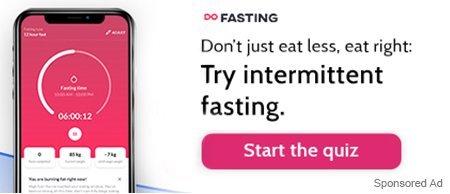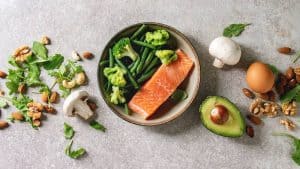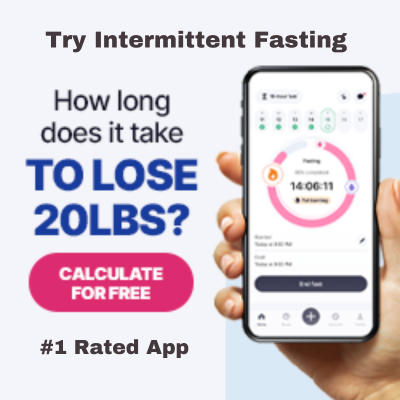What are probiotics | Intermittent Fasting basics | Probiotics & Intermittent Fasting | Do probiotics break a fast | probiotic-containing foods | When to take Probiotics during Intermittent Fasting | Benefits of Probiotics
We have received dozens of questions that ask – Do Probiotics Break a Fast? Let’s dive in…Two health trends that you have probably heard of are probiotic supplements and Intermittent Fasting. Probiotics are frequently used as a way to boost gut health and keep your digestive tract running like clockwork. Intermittent Fasting is a popular way to lose weight and improve overall health.
If you have been practicing Intermittent Fasting for any amount of time, then you know it can be tricky to figure out what supplements or foods may break your fast. After all the work that you have put in to keep your Intermittent Fasting schedule, you wouldn’t want your hard work to go to waste by accidentally breaking your fasting window with something like a probiotic.
Many wonder if things like bulletproof coffee, bone broth, or salt will break a fast. While the general rule of thumb is that if something has a significant amount of calories, it will likely break your fast. But, what about probiotics breaking a fast?
We’ve got all your answers here when it comes to probiotics and Intermittent Fasting. Most importantly, we will explore the question, Do probiotics break a fast?
What are probiotics?
First, let’s start with the basics. What exactly are probiotics? Probiotics are a mixture of live bacteria and yeasts that naturally occur in your digestive system. While you may initially think of bacteria as a bad thing, there are both good and bad types of bacteria that live in and on your body.
Probiotics are the good type of bacteria, meaning they provide benefits and keep your body healthy. The good bacteria will often balance out the bad bacteria by fighting it off when there is too much bad bacteria in your body.
Probiotics contribute to the larger microbiome within the gut. The microbiome is a unique set of various microbes. Most probiotics live in the large intestine, but can occur elsewhere in the body as well.
While there are many types of probiotics that live within the body, the most common types of probiotics found in store-bought supplements include Lactobacillus and Bifidobacterium.
There are a variety of ways to consume probiotics whether it’s through supplements or through probiotic-containing foods.
Intermittent Fasting basics
Intermittent Fasting is an eating pattern where you avoid consuming a significant amount of calories for a period of time. This is called your fasting window.
The remainder of the time is known as the eating window, where all of your calories are consumed. Think of it more as an eating schedule, than a prescriptive diet that tells you exactly what to eat.
There are many benefits to Intermittent Fasting such as weight loss, hormone regulation, and improves heart health. One reason Intermittent Fasting has gained popularity over the last few years is that there are different types of fasting to help you reach your goals.
It’s not a one-size-fits all approach and you can fast anywhere between 12 to 23 hours. If you are new to Intermittent Fasting, and want to give it a try, it’s best to start slow. If you are interested in learning more about the different types of Intermittent Fasting and which one is best for your schedule, click here.

Can you take probiotics while Intermittent Fasting?
You may be wondering if you can take probiotics while following Intermittent Fasting. Probiotics certainly fit within the guidelines of Intermittent Fasting. Unprocessed, nutrient-dense foods are encouraged while Intermittent Fasting. As probiotics promote a healthy gut, which in turn promotes an overall healthy body, it can be beneficial to take while Intermittent Fasting.
Intermittent Fasting has been shown to actually change the gut microbiome and this change actually promotes weight loss through the browning of white adipose tissue. Another systematic review study showed how periods of fasting promoted a change in the gut microbiome that aided in obesity and insulin resistance.
But, should you take probiotics during a fasting window? Keep reading below to find out if probiotics will break your fast.
Do probiotics break a fast?
The short answer is, it depends. It depends on if the probiotic has calories or not. Some probiotics contain no additional calories and in that case, it would not break a fast. However some probiotics do contain calories whether from artificial sweeteners, filler carbohydrates, or added flavors. These types of probiotic supplements as well as probiotic-containing foods will break a fast and would not be suitable to consume during that window.
There are many available probiotic supplements on the market that do not contain any calories, and therefore will not break a fast. It’s important to read labels on any supplement or food item to make sure you know what you are putting in your body.
In this case, it would be important to look for calorie content as well as if there are any carbohydrates which would put you at risk for breaking your fast, if you take it within your fasting window.
Similarly, eating probiotic-containing foods during your fasting window would also break your fast. Since these foods contain significant calories, it would not be suitable to consume. However, if you find a probiotic supplement with calories or probiotic-containing food that you like, there is the option to take it during your eating window.

What are some probiotic-containing foods?
Not all probiotics are consumed through the use of a supplement. If you don’t want to deal with the hassle of remembering to take a supplement, there are ways to consume probiotics naturally through your diet.
There are certain foods that contain probiotics and can be very beneficial to add to your diet. Foods that are naturally cultured or fermented often contain live microorganisms that are beneficial to gut health.
Here is a list of a few foods that contain probiotic-like microorganisms:
- Yogurt
- Buttermilk
- Kimchi
- Fermented pickles
- Kefir
- Miso soup
- Cottage cheese
Some fermented drinks like kombucha can contain probiotics or prebiotics which may also be beneficial (and also contain calories!). Fermented foods are not consumed as much in the typical American diet, so incorporating these types of foods can have other benefits such as lowering blood pressure, cholesterol, and blood sugar. If you don’t regularly eat fermented foods, then it may be beneficial to consider taking a probiotic supplement.
Another factor to consider is the use of prebiotic-containing foods. There are certain foods that contain prebiotics, which are specific types of plant fibers that are important food sources for gut bacteria. They stimulate the growth of good bacteria, helping them to flourish in the gut. Prebiotics are often found in complex carbohydrates and high fiber containing foods such as fruits and vegetables. These are important to include in the diet for not only the vitamins and nutrients they contain, but also for their role in gut health.
When to take Probiotics during Intermittent Fasting?
So when exactly should you take probiotics?
The answer depends on your probiotic manufacturers’ specific directions. Some indicate that the probiotic should be taken with a meal and some recommend taking on an empty stomach. Some research shows that certain strains of probiotics such as Lactobacillus and Bifidobacterium had a greater chance of survival if taken 30 minutes before a meal.
Benefits of Consuming Probiotics While Intermittent Fasting
Gut Health
Probiotics help to maintain a healthy balance of bacteria in your gut, which can improve digestion and reduce symptoms of digestive disorders like irritable bowel syndrome (IBS), inflammatory bowel disease (IBD), and diarrhea.
Intermittent Fasting has been shown to reduce inflammation in the gut while also improving the health of the gut lining. With both probiotics and Intermittent Fasting working to improve gut health, it’s no wonder that they are a powerhouse team when it comes to your gut.
Immune System
Previously thought to be two entirely separate systems, your digestive system actually contains immune cells. Through the action of these immune cells in the digestive tract, probiotics have been shown to treat and prevent some illnesses.
It also aids in the body’s immune overall response. Probiotics have been shown to maintain a healthy and diverse community of microorganisms in order to bring body back to balance after a disruption (like an illness) has occurred.
Enhanced Nutrient Absorption
Fasting promotes a phenomenon called autophagy, which is the process that the body uses to repair cellular damage. This process can lead to increased nutrient absorption, which includes better absorption of probiotics.
Mental Health
More recently, studies have suggested a strong connection between your gut and your brain. This is one of the many reasons why it is so important to have a healthy and diverse gut microbiome.
Probiotics have been shown to improve mental health markers in certain studies. These studies show an increase in mood and improved cognitive function, while also lowering stress and anxiety.
Probiotics and intermittent fasting are two powerful health practices that can have numerous benefits for your health. They work together in remarkable ways and their benefits reach from the gut to the brain.
If you’re considering adding these practices to your health routine, it’s always important to talk to your healthcare provider first to ensure that they are safe and appropriate for you. With proper guidance and consistency, probiotics and intermittent fasting can be useful tools for optimizing your health and well-being.
Conclusion
I personally take probiotics almost every day. And I also try to eat as many fermented foods as possible to boost my gut health and gut flora. I will try to incorporate Kombucha, Raw Kefir Raw Sauerkraut, and other fermented vegetables. Also Raw Milk is picking up some steam nationwide for its a amazing health properties, as there are studies coming out, and some states beginning to legalize the use of Raw Milk. Your gut health is super-important for all metabolic health, so treat your gut kindly!
Similar Articles You may enjoy!
See these Top 7 Intermittent Fasting Supplements.












